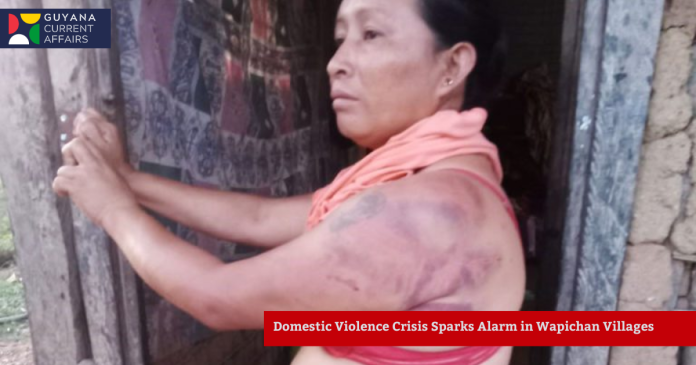The Wapichan Indigenous communities in Guyana’s South Rupununi are raising urgent alarms over a surge in domestic violence, with local leaders and activists calling for immediate action to protect women and families.
The crisis comes just days after the nation was rocked by the murder of three members of the LaCruz family in a horrific domestic violence incident, underscoring the severity of the problem in both urban and rural areas. Within the 21 Wapichan villages overseen by the South Rupununi District Council (SRDC), recent surveys have revealed that rates of domestic violence are alarmingly high, with many cases going unreported due to stigma and a lack of support services.
Alma O’Connell, a prominent women’s rights activist and survivor of domestic violence from Maruranau Village, has been at the forefront of advocacy efforts. She described the lack of trained counselors and support systems as a major barrier for victims seeking help. “We’re aware of the issues but we’re lacking the human resources to deal with them. We’re hoping we can put systems in place for those issues in our communities,” O’Connell said. She emphasized the need for more awareness workshops, youth training, and community-based interventions to change attitudes and provide tangible support.
The Wapichan Women’s Movement, supported by the SRDC, has been organizing annual conferences and workshops to address domestic violence and empower women. While these initiatives have sparked important conversations, activists say much more is needed. Immaculata Casimero, co-founder of the Wapichan Wiizi Women’s Movement, has advocated for the training of women paralegals to help address domestic violence, sexual violence, and other social issues at the grassroots level.
The situation in the Wapichan villages mirrors national trends. Despite a reported 33 percent decrease in domestic violence-related homicides across Guyana in the past year, advocates warn that many victims in Indigenous and hinterland communities remain isolated and unsupported. Calls are growing for the government to expedite the implementation of essential services for victims, including shelters and crisis centers, and to increase resources for rehabilitation and reintegration.
The United Nations Committee on the Elimination of Discrimination against Women (CEDAW) has echoed these concerns, urging Guyanese authorities to improve access to services for Indigenous women, accelerate educational campaigns, and amend laws to better protect victims of gender-based violence.
As the Wapichan communities confront the ongoing crisis, leaders and survivors alike continue to push for systemic change, determined to break the cycle of silence and ensure safety and justice for all.


